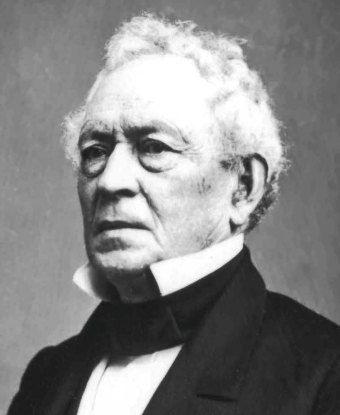Last updated: June 18, 2015
Person
Edward Everett

Library of Congress
Born the son of a Boston reverend in 1794, Edward Everett - arguably a genius - was admitted to Harvard University at the age of 13, and his list of accomplishments in the years that followed is long.
He served in the U.S. House of Representatives for 10 years, was governor of Massachusetts, a U.S. Senator, the 20th U.S. Secretary of State, president of his alma mater, a U.S. minister to England, and the vice presidential candidate for the short-lived Constitutional Union Party.
In addition to all that, he happened to be a very gifted lecturer and orator, once raising $70,000 for the preservation of George Washington's Mount Vernon just through his speeches. It was a talent for which Everett was invited to deliver the keynote address at the dedication of the Soldiers' National Cemetery in Gettysburg, Pennsylvania on November 19, 1863, speaking prior to President Lincoln, who had been invited to deliver "a few appropriate remarks."
Speaking to the crowd for more than two hours, Everett, after hours of meticulous research, brought to life the three-day Battle of Gettysburg - in which over 50,000 troops were casualties - moving many in the audience to tears. He connected the heroic struggle for freedom in the classical and modern worlds with the valor and sacrifice demonstrated on America's battlefields. He went on to predict that North and South would eventually reconcile and the result would be a stronger Union.
The words most remembered on that day are, of course, Lincoln's, although the president was actually only at the podium for three minutes. The two congratulated each other afterwards, with Lincoln noting "In our respective parts yesterday, you could not have been excused to make a short address, nor I a long one." Later, Everett wrote to Lincoln, expressing his admiration of the president's words, saying "I should be glad if I could flatter myself that I came as near to the central idea of the occasion, in two hours, as you did in two minutes."
A vehement supporter of the Union, Everett campaigned extensively for Lincoln's re-election in 1864, exhausting himself in the process and dying just two months after the election. He is today interred at Mount Auburn Cemetery, a National Historic Landmark in Cambridge, Massachusetts.
